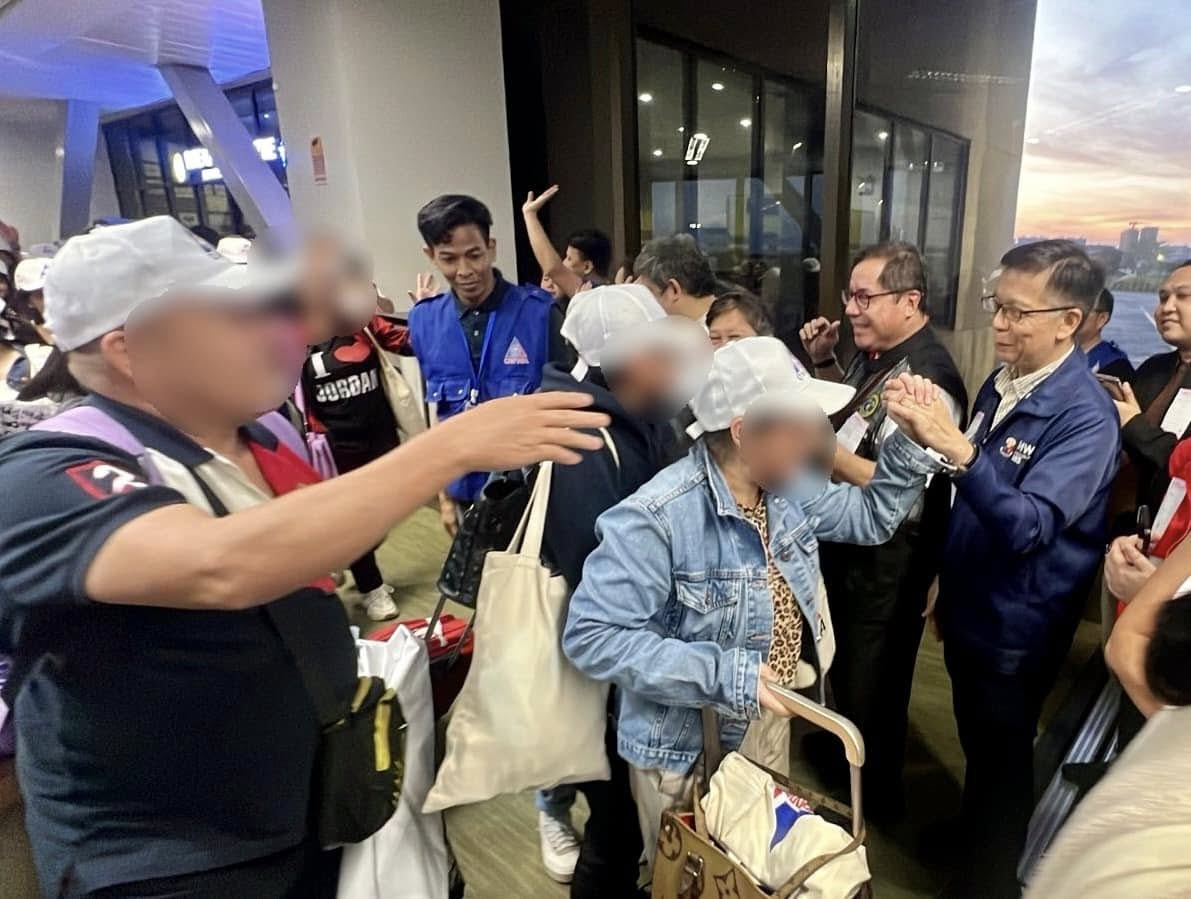News
Veloso returns; PH gov’t boosts support for OFWs, seafarers
By Marita Moaje, Philippine News Agency

FILE: SAFE AT LAST. Overseas Filipino workers from Lebanon repatriated by the Philippine government arrive at Ninoy Aquino International Airport on Oct. 17, 2024. The group was welcomed by Migrant Workers Secretary Hans Leo Cacdac, Health Secretary Ted Herbosa and Foreign Affairs Undersecretary Eduardo de Vega. (Photo: Department of Migrant Workers/Facebook)
MANILA – After almost 15 years of detention in Indonesia for drug trafficking, migrant worker Mary Jane Veloso returned home a week before Christmas.
Veloso’s long-awaited homecoming marked a milestone in the Philippine government’s continuing efforts to protect overseas Filipino workers (OFWs) and their families.
She was arrested in Indonesia in April 2010 after being caught with 2.6 kilos of heroin. On the same year, she was sentenced to death.
In 2015, she was granted a temporary reprieve from execution by then-Indonesian President Joko Widodo to help Philippine authorities investigate human trafficking charges linked to her case.
In November this year, President Ferdinand R. Marcos Jr. announced that Manila and Jakarta reached an agreement to transfer Veloso to the Philippines, thanking new Indonesian President Prabowo Subianto and his government for their goodwill.
Veloso’s return also paved the way for the filing of charges against the human trafficking syndicate that allegedly recruited her.
Upon her arrival, she was taken to the Correctional Institution for Women in Mandaluyong City as part of the deal.
Before her return on Dec. 18, her sister was also repatriated after reported sexual abuse by her employer in Saudi Arabia.
The Veloso family received financial assistance, skills training vouchers from the Technical Education and Skills Development Authority, and healthcare assistance from the OFW Hospital in Pampanga.
Repatriations, reintegrations
As of Nov. 20, 2024, the DMW has repatriated 1,986 distressed OFWs from Kuwait; 1,203 OFWs and 52 dependents from Lebanon as of Nov. 21; and 1,046 OFWs and 30 dependents from Israel as of Nov. 20.
OFWs from Lebanon and Israel were repatriated due to ongoing conflicts in the Middle East.
The DMW provided financial assistance of PHP75,000 while the Overseas Workers Welfare Administration gave another PHP75,000 per worker, along with other forms of support such as medical care, reintegration programs, and emergency assistance packages.
Meanwhile, under the DMW reintegration programs, a total of 1.362 beneficiaries received PHP13.6 million in assistance under the “Balik Pinay, Balik Hanapbuhay” program, PHP6.8 million under the Livelihood Development Assistance Program which benefited 684 beneficiaries, and PHP17.8 million for 892 beneficiaries under the “Sa PInas, Ikaw ang Ma’am at Sir” program.
Lectures were also held to help OFWs and their families manage their finances, with 3,299 participants in the Financial Awareness Seminar on Small Business Management Training, 1,903 participants in the Reintegration Education Seminar, and 540 participants in the Kalinga Psychosocial and Welfare Intervention activities.
Meanwhile, PHP51.3 million under the Aksyon Fund financial assistance benefitted 1,639 OFWs.
Enhanced protection
To further enhance protection and expand its services, new Migrant Workers Offices opened in Budapest, Hungary and in Warsaw, Poland.
Fifteen establishments were closed due to illegal recruitment, 45,801 illegal recruitment posts were taken down on various social media platforms, 17,044 individuals were given legal assistance, 60 illegal recruitment cases have been handled, and 10 illegal recruitment and trafficking-in-person convictions were successfully handed down.
In another significant development, President Marcos signed Republic Act No. 12021, or the Magna Carta of Filipino Seafarers, on Sept. 23 in Malacañang, Manila.
The long-awaited legislation aims to protect the welfare and rights of Filipino seafarers, locally and internationally.
DMW data show there are approximately 400,000 Filipinos working in international ships, making the Philippines the world’s top supplier of seafarers.
The Magna Carta, which took over 10 years to pass, provides comprehensive protections covering education, training, wages, working conditions, and compensation for Filipino seafarers.
It also establishes stronger safety protocols for Filipino workers in high-risk maritime zones and seeks to improve seafarers’ education, training, and cadetship programs to improve their skills.
The law mandates higher wages, improved labor conditions, and protection for seafarers involved in accidents, injuries or piracy incidents.
With over 200 Filipino seafarers involved in maritime accidents every year, the law addresses the safety and well-being of Filipino seafarers who often find themselves in perilous conditions.
It creates a comprehensive framework for preserving and improving the rights and welfare of Filipino seafarers in local and international shipping and harmonize policies among concerned agencies, such as the Commission on Higher Education, Department of Foreign Affairs, Maritime Industry Authority, Philippine Coast Guard, Department of Labor and Employment, and DMW.
Strengthening support for OFWs
To ensure that returning OFWs and their families get proper health and medical assistance, President Marcos led the groundbreaking of the OFW Hospital Bagong Pilipinas Cancer Care Center in San Fernando City, Pampanga on Dec. 10.
In his speech, Marcos said it is the government’s way of thanking OFWs for their sacrifices for their families and their contributions to the economy.
He said a cancer facility and better-equipped outpatient department will soon rise at the hospital, a fulfillment of the wishes of the late DMW chief Susan Ople.
The PHP80-million cancer facility is expected to be completed by November 2025 and begin operations in 2026.





















